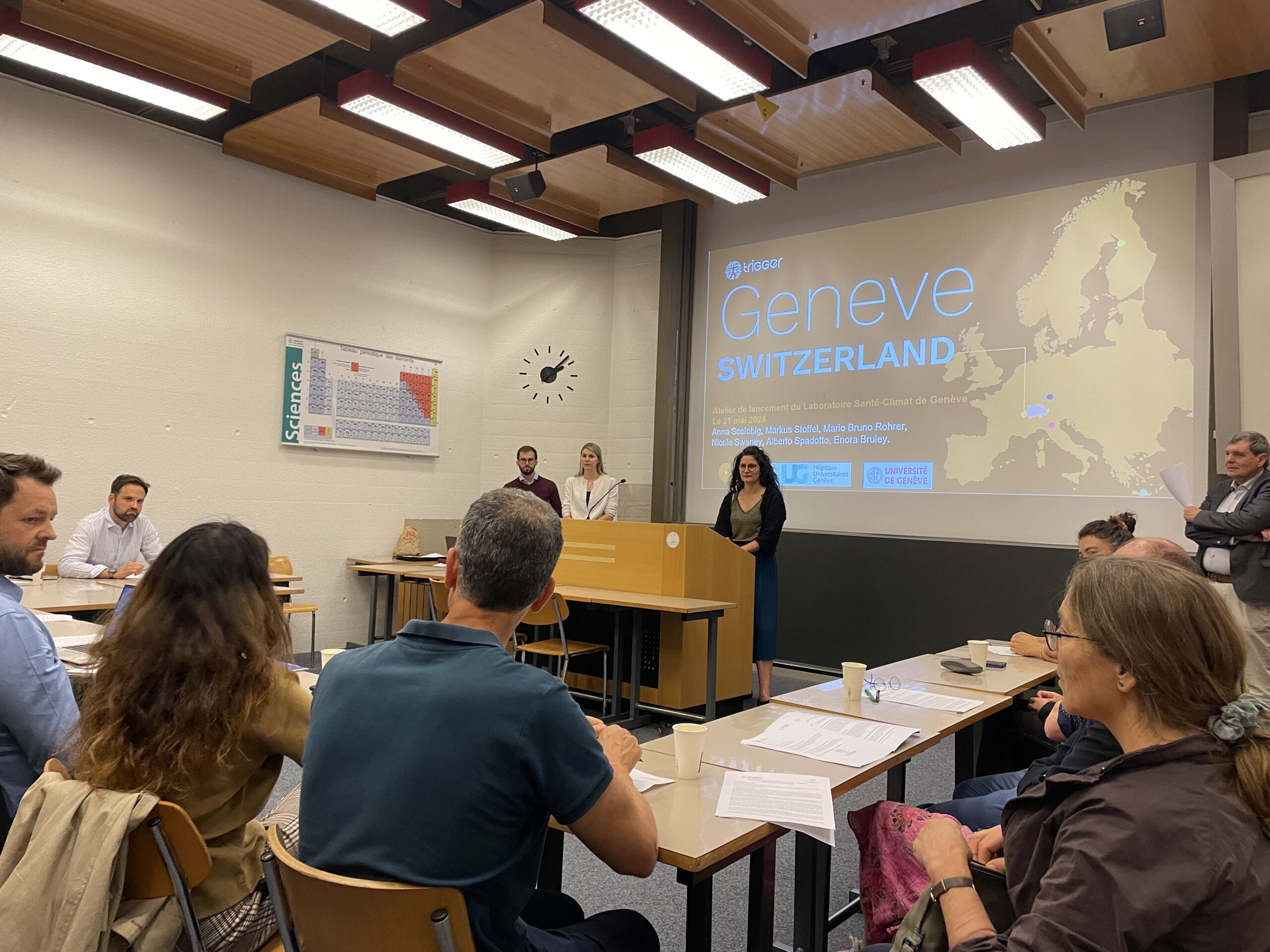Experts and stakeholders discuss solutions for health Impacts of Climate Change
One of the most significant climate risks facing the canton of Geneva is the increasing frequency and intensity of extreme heat events. Geneva has been proactive in implementing preventive measures to safeguard public health during heatwaves, achieving a notable reduction in heat-related deaths since 2003. However, determining the specific health or climate interventions responsible for this reduction remains challenging. Geneva’s Climate-Health Lab (CHCLab) aims to provide targeted solutions that support public authorities and the healthcare sector in managing and mitigating the health impacts of extreme weather.
The purpose of the recent kickoff workshop was to introduce participants to the TRIGGER project and the Climate-Health Lab, along with ongoing research from the University of Geneva team. This workshop gathered 15 participants representing local institutions, healthcare professionals, researchers, and community associations.
The workshop featured three expert presentations:
- Heatwave Vulnerability and Health Co-factors – Presented by Mario Bruno Rohrer from UNIGE.
- Geneva’s Climate Strategy – Presented by Délia Fontaine, Scientific Associate of the Cantonal Climate Plan.
- Cantonal Heatwave Management System – Presented by Afamia Kaddour, Scientific Advisor at the Cantonal Health Office.

Following the presentations, group discussions allowed participants to explore the current and necessary measures to address heat-related health impacts. Participants also identified gaps and needs in public policy, regulations, knowledge, tools, and infrastructure required for the effective implementation of these measures.



